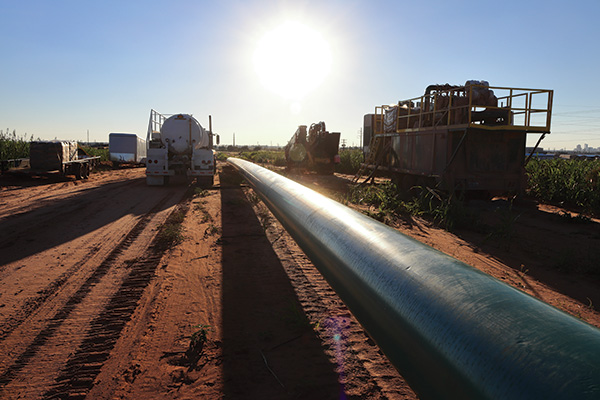COFCO Brings Brazil's First Biodiesel Pipeline Online
(Reuters) — The Brazilian unit of China's COFCO International started operating the South American country's first biodiesel pipeline connecting its plant in Rondonopolis, at the heart of Brazil's farm country, to nearby distributors.
According to a statement on Friday, the 3-kilometer (2-mile) pipeline will eliminate up to 12,000 tanker truck trips per year, reducing road traffic and emissions.
The plant produces biodiesel from soybeans outside of areas of deforestation or native forest conversion, COFCO said.
"Our customers are excited about the prospect of getting a cheaper and more sustainable fuel," said Guilherme Achcar, the commercial director in Brazil for the overseas trading business of China's state-owned food group COFCO Corp.
Rondonopolis, in addition to being one of the most important agricultural hubs in Mato Grosso, Brazil's top grain producer, is also connected by rail to ports like Santos in the southeast.
COFCO's Rondonopolis biodiesel plant is certified by Brazil's national biofuel program, known as RenovaBio.
The Rondonopolis unit has a biodiesel production capacity of 370.8 million liters per year, while the new pipeline can pump 280 cubic meters per hour.
Related News
Related News

- Kinder Morgan Proposes 290-Mile Gas Pipeline Expansion Spanning Three States
- Enbridge Plans 86-Mile Pipeline Expansion, Bringing 850 Workers to Northern B.C.
- Intensity, Rainbow Energy to Build 344-Mile Gas Pipeline Across North Dakota
- Tallgrass to Build New Permian-to-Rockies Pipeline, Targets 2028 Startup with 2.4 Bcf Capacity
- U.S. Moves to Block Enterprise Products’ Exports to China Over Security Risk
- U.S. Pipeline Expansion to Add 99 Bcf/d, Mostly for LNG Export, Report Finds
- A Systematic Approach To Ensuring Pipeline Integrity
- 275-Mile Texas-to-Oklahoma Gas Pipeline Enters Open Season
- TC Energy’s North Baja Pipeline Expansion Brings Mexico Closer to LNG Exports
- Consumers Energy Begins 135-Mile Michigan Gas Pipeline Upgrade, Taps 600 Workers





Comments